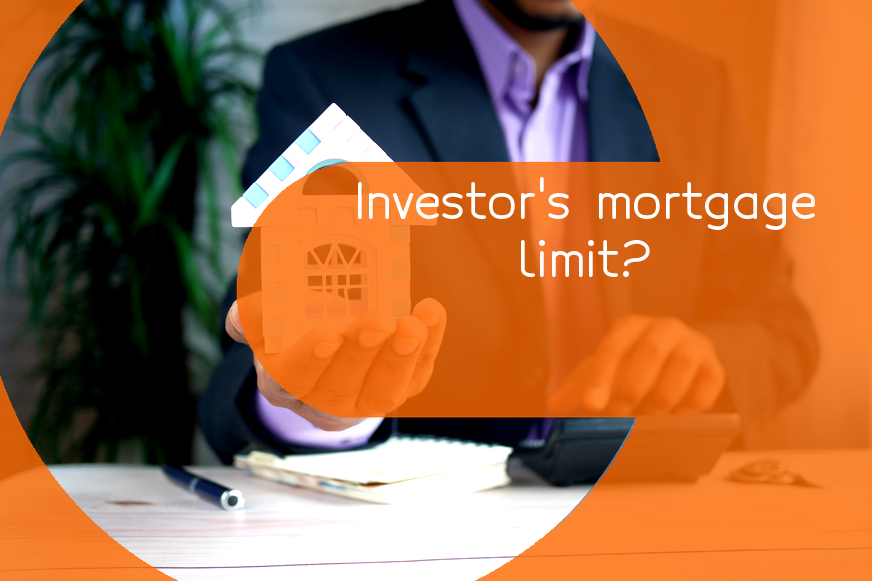As an investor, you can have multiple mortgages. There is no specific limit on the number of mortgages you can have, but there are some factors you need to consider before taking on multiple mortgages.
Firstly, you need to assess your ability to handle multiple mortgages. Handling multiple mortgages requires a significant amount of financial stability and planning. You need to ensure that you have sufficient cash flow to manage your repayments and expenses associated with multiple mortgages.
Secondly, you need to consider the lending criteria of the lender or bank. As an investor, you will need to meet certain requirements such as credit score, income, and debt-to-income ratios to be eligible for a mortgage. Some lenders may place limits on the number of mortgages they are willing to offer to a single borrower.
Thirdly, you need to assess the risks associated with multiple mortgages. Investing in multiple properties comes with the risk of market fluctuations, property values, and rental vacancies. If you don't have a clear strategy for managing these risks, they could lead to financial difficulties.
Finally, it's essential to consider your investment goals and determine whether multiple mortgages align with your long-term investment strategy. Having multiple mortgages can provide investors with the opportunity to diversify their portfolios, generate rental income, and build wealth. However, it requires careful planning, due diligence, and understanding of the associated risks and rewards.
Conventional Mortgages for Your First Few Rental Properties
Conventional mortgages are a popular option for purchasing rental properties since they offer a variety of benefits for the property buyer, such as lower interest rates and more flexible repayment terms. Conventional mortgages come with fixed or adjustable interest rates, which makes them ideal for financing rental properties for a more extended period.
Conventional mortgages are generally suitable for acquiring your first few rental properties in multiple ways:
- 1Lower interest rates: Conventional mortgages often offer lower interest rates compared to other loan types, including commercial loans. Lower interest rates can make it easier for first-time landlords to acquire rental properties, as they allow the buyer to reduce their borrowing costs and debt risks.
- 2Flexibility in Repayment terms: Conventional mortgages come with flexible repayment terms, including a range of mortgage lengths and payment options such as an interest-only mortgage, fixed-rate mortgage, and adjustable-rate mortgage. Thus, the flexibility of the mortgage makes financing rental properties easier, especially for first-time landlords.
- 3Easy qualification process: Conventional mortgages have an easier qualification process compared to other loan types. Lenders typically require a higher down payment, a good credit score, and a stable income to qualify for a conventional mortgage. However, the qualification process is much more straightforward than commercial loans, which usually require more extensive scrutiny of the borrower, property, and business plan.
- 4Availability: Conventional mortgages are readily available from various lenders, including national and local banks, credit unions, and other financial institutions. This means that first-time landlords may have an easier time finding a suitable lender for their rental property financing needs.
In conclusion, conventional mortgages are a suitable financing option for first-time landlords looking to acquire their first few rental properties. They offer unique benefits such as flexibility, lower interest rates, and an easier qualification process compared to other loan types. However, it is essential to consider your financial goals and long-term prospects before committing to a conventional mortgage.
How to Borrow More Conventional Rental Property Mortgages
If you are looking to borrow more conventional rental property mortgages, there are several steps you can take to increase your chances of approval. Here are some tips to help you:
- 1Maintain a good credit score: Your credit score is an important factor when applying for a mortgage. A good credit score shows lenders that you are a responsible borrower and can be trusted to repay the loan. Aim to maintain a score of 700 or higher.
- 2Have a stable income: Lenders want to see that you have a stable source of income to ensure that you will be able to make your mortgage payments on time. If you are self-employed, provide documentation of consistent income to show lenders.
- 3Save for a down payment: While it is possible to obtain a rental property mortgage with a low down payment, having a larger down payment can improve your chances of approval and lower your interest rate. Aim to save at least 20% of the property's value.
- 4Choose the right lender: Not all lenders offer rental property mortgages, so it is important to research and find a lender that specializes in this type of financing. Shop around and compare rates and terms to find the best option for you.
- 5Have a solid business plan: To show lenders that you are a serious investor, have a solid business plan that outlines your strategy, goals, and projected cash flow. This will help lenders see the potential for success and improve your chances of approval.
- 6Consider refinancing: If you already have a rental property mortgage, you may be able to refinance to borrow more. This can be a good option if you have built up equity in the property or if interest rates have lowered since you obtained your original mortgage.
Overall, borrowing more conventional rental property mortgages requires careful planning and preparation. By following these tips, you can increase your chances of approval and secure the financing you need to grow your real estate portfolio.
Other Ways to Finance Rental Properties
There are several methods to finance rental properties. Below are some popular ones:
- 1Conventional financing: Conventional financing is the most popular financing method for rental properties. One can get a conventional loan from a bank, credit union, or mortgage lender. The loan is usually secured by the rental property.
- 2Private money lending: Private money lending is a loan provided by an individual or group of investors who are interested in investing in real estate. In this method, the borrower agrees to pay the loan back with interest.
- 3Hard money lending: Hard money lending is a loan provided by a private lender or group of lenders that are secured by the rental property. The interest rates on hard money loans are usually higher than conventional loans.
- 4Seller financing: Seller financing is when the seller of the rental property provides a loan to the buyer. The terms and conditions of the loan are usually negotiated between the buyer and seller.
- 5Home equity loans: Home equity loans are loans that are secured by the equity in a primary residence. These loans can be used to finance rental properties.
- 6Crowdfunding: Crowdfunding is a method of raising money through a large number of investors. Investors can invest in rental properties and receive a return on their investment.
- 7Self-Directed IRA: A Self-Directed IRA is a retirement account that allows investors to invest in rental properties. The rental income generated by the property is deposited into the IRA, providing tax advantages.
Just one more thing: if you liked the article, please like us on social media and share this article with friends.



